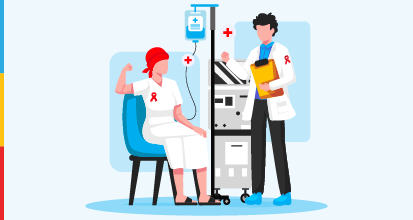Factors to Consider before Buying a Term Insurance for People with Disability
Insurers include certain special clauses for disabled persons, due to the higher degree of risk involved. So, people with disability need to understand the terms and conditions associated with the coverage while buying a plan.
Consider the three major things while buying a term insurance policy:
1. The Cover Offered
You need to ensure that the cover offered is adequate to help your beneficiaries through the financial crisis that may occur in your absence. Check the sum assured and calculate if it's enough to cover the annual expenses of your dependents.
Evaluate your options by comparing quotes from multiple life insurers to find the best deal.
2. The Premium Payable
The premium payable in term insurance for disabled persons is generally higher than the regular premium. Nevertheless, ensure that the premium you need to pay is within your budget, so you reduce the risk of defaulting on the payment. You have the option to spread the payments over months, quarters, or years, so choose carefully after assessing your financial horizon.
3. Available In-Built Covers
Term insurance often comes with additional in-built covers such as accidental death benefit coverage, waiver of premium riders, or critical illness benefit. For people with disabilities, adding optional covers can prove to be useful. The additional covers will enhance your base term plan by offering you more benefits during the policy term.
However, the additional covers will impact the premiums you pay. Hence, choose the covers as per your financial goals and needs.
While people with disabilities can buy term insurance plans, it is important to carefully consider the coverage offered by the insurer to ensure that it adequately meet your needs.
Due to lack of social security in India, disable people should buy the right term plan to ensure their financial stability. Pay the premiums regular to enjoy the benefits of the plan throughout. Also, choose a life insurance company that is reliable and trustworthy and has a high claim settlement ratio. Higher the claim settlement ratio, easier it will be for your beneficiaries to get the benefits of the plan in your absence.












